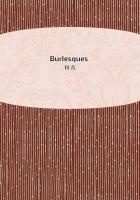10.Many of the French antiquaries and historians have believed that the feudal system was completed under their kings of the first race.(See Mezeray, hist.de France.-- Loyseau, trait?des seigneuries.-- Salvaing, de l'usage des fiefs.--) Others have supposed that military tenures were unknown during this early period, and were introduced, either about the time of Charlemagne, or towards the end of the second race of kings, or about the time of Hugh Capet.(See Boulainvilliers, lettres sur les parlemens de France.-- Chantereau de Fevre, trait?des fiefs.-- Henault, abr.de l'hist.de France.-- Bouquet, droit publique de France, etc.) These various opinions appear to have arisen from a different view of the facts relating to the subject; and here, as in most other disputes, the truth probably lies in a middle between the opposite extremes.To those authors who observed that, soon after the settlement of the Franks in Gaul, the king and the great lords had a considerable number of vassals dependent upon them for protection, and liable in military service, it seemed a natural inference that the whole land in the country was held by military tenure.Those on the contrary who discovered that, under the kings of the first and second race, the great lords were in possession of allodial estates, and who observed, that, after the reign of Hugh Capet, many of the perquisites incident to the feudal tenures were established, thought they had reason from thence to conclude that the feudal system was not introduced before this period.
11.From similar circumstances it has been a subject of controversy, whether the feudal system took place in England under the government of the Saxon monarchs, or whether it was not first introduced in the reign of William the Conqueror.See Wright's Introduction to the law of tenures, chap.2.and the authorities quoted by him upon both sides of the question.
Sir Henry Spelman having said in his Glossary, v.feodum, that fiefs were brought into England by William the Conqueror, and the judges of Ireland, in their argument in the case of defective titles, having pointed out that opinion as erroneous, this industrious antiquary was thence excited to write a treatise upon the subject, in which he explains his meaning to be nothing more but that in England, fiefs were not rendered hereditary before the Norman conquest.Thus, after having stated the question, in the beginning of his treatise, he goes on as follows: 'A FEUD is said to be usufructus quidam rei immobilis sub conditione fidei.But this definition is of too large extent for such kind of feuds as our question must consist upon: for it includeth two members of species greatly differing the one from the other; the one temporary and revocable (as those at will or for years, life or lives); the other hereditary and perpetual.As for temporary feuds, which (like wild fig-trees) could yield none of the feudal fruits of wardship, marriage, relief, etc.unto their lords, they belong nothing unto our argument.' -- And a little after he adds, 'But this kind of feud (we speak of) and no other, is that only whereof our law taketh notice, though time hath somewhat varied it from the first institution, by drawing the property of the soil from the lord unto the tenant.And Iboth conceive and affirm under correction, That this our kind of feuds being perpetual and hereditary, and subject to wardship, marriage, and relief, and other feodal services were not in use among our Saxons, nor our law of tenures (whereon they depend)once known unto them.' (Spelman's treat.on feuds and tenures by knight-service, chap.1.The same author, in another part of his treatise, proceeds to shew that, in England among the Saxons, the estates of the nobility were denominated Boc-land, and were held in full property, but that Folc-land, or the land of the lower people, was held under condition of customary services, at the will of their lord the Thane.Ibid.chap.5.
It is hoped the above remark will appear not improper;because the authority of Spelman upon this point, has been considered as of much weight; and also because some writers appear to have mistaken his opinion by consulting the passage in his glossary, without attending to the subsequent treatise, published among his posthumous works by Dr Gibson.
12.Les voyages d'une Philosophe.















